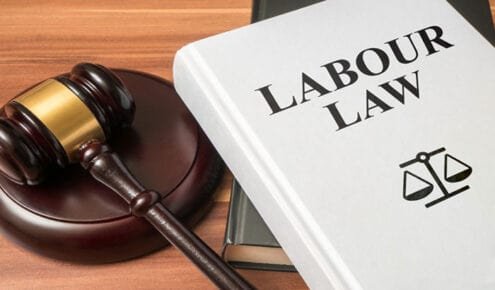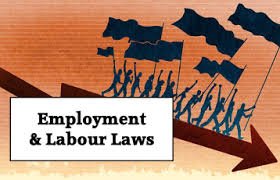- +92 333 1127830
- info@qanoonhouse.com
- Qanoon House, T-219, Supreme Corner, Jauhar Chowrangi, Block 17, Gulistan-e-Jauhar, Karachi, Pakistan
labour laws in Pakistan Our Lawyers
LABOUR LAWS IN PAKISTAN AND OUR EXPERT LABOUR LAWYERS
Labour laws in Pakistan are crucial for organizations, industries, and establishments to ensure fair treatment of workers, compliance with legal obligations, and the protection of labor rights. These laws encompass various regulations and provisions that govern the employer-employee relationship, working conditions, wages, and social security. Navigating through these labor laws can be complex, requiring expert guidance. Labor lawyers play a vital role in assisting organizations, industries, and establishments to understand and comply with these laws. They provide legal counsel, representation, and support in employment contracts, disputes, collective bargaining, and ensuring a safe and healthy work environment. With the expertise of labor lawyers, organizations can effectively navigate labor laws, mitigate risks, and foster a positive work culture that respects the rights and well-being of their employees.
OUR EXPERT LABOUR LAWYER /ATTORNEYS AT QANOON HOUSE
Our Karachi-based labour law section of Qanoon House, a prominent law firm, specializes in providing legal services for these laws, ensuring smooth business operations, fair profits, and better wages. We handle employee consultations, civil servant cases, appointments, terminations, recruitment disputes, promotions, and pension issues. Additionally, we interpret and enforce work rules that establish standards for working conditions and govern employer liability, compensation, and safety.

PREVALENT LABOUR LAWS IN PAKISTAN
Labour laws in Pakistan have a long history, originating from the pre-partition era, and are continually revised and updated. These laws are outlined in the constitution of Pakistan, along with specific labor laws that cater to the diverse needs of different industries and sectors. Prominent labor laws in Pakistan include the Factories Act, Industrial Relations Act, Minimum Wage Act, and various acts addressing social security, child labor, and bonded labor.
LABOUR LAWS UNDER THE CONSTITUTION OF PAKISTAN
Fundamental Rights and Principles of Policy The constitution of Pakistan, under Part II, encompasses fundamental rights and principles of policy related to labor rights. These provisions prohibit slavery, forced labor, and child labor, guarantee freedom of association and the right to form unions, establish the right to equality and non-discrimination, and emphasize the importance of just and humane working conditions.

PROHIBITION OF SLAVERY, FORCED LABOR, AND CHILD LABOR
Article 11 of the Constitution prohibits all forms of slavery, forced labor, and child labor. This reflects the commitment of the state to eradicate these practices and protect the rights of vulnerable individuals, especially children.
FREEDOM OF ASSOCIATION AND RIGHT TO FORM UNIONS
Article 17 of the Constitution ensures citizens’ fundamental right to freedom of association and the right to form unions. This empowers workers to organize and collectively bargain for their rights and interests, fostering a balanced relationship between employers and employees.
Legal Services
Our Attorney

Popular Service
Provincial Tax Authorities
Misc. Services
Recent Article
RIGHT TO EQUALITY AND NON-DISCRIMINATION
Article 25 of the Constitution establishes the right to equality before the law and prohibits discrimination based on sex. This provision ensures fair treatment of workers without bias, promoting an inclusive and diverse workforce.
SECURING JUST AND HUMANE CONDITIONS OF WORK
Article 37(e) of the Constitution emphasizes securing just and humane work conditions for all individuals. It prohibits the employment of children and women in unsuitable vocations and mandates maternity benefits for women in the workforce.
KEY PROVISIONS OF LABOUR LAWS IN PAKISTAN
Annual Leave and Holidays According to the Factories Act, employees are entitled to 14 calendar days of paid annual leave after completing 12 months of continuous service. This provision ensures workers have time for rest, rejuvenation, and personal commitments.
PAY ON PUBLIC HOLIDAYS
Workers in Pakistan are entitled to paid festival holidays, determined by the Ministry of Interior and Provincial Government at the beginning of each calendar year. These holidays enable workers to celebrate religious and public events while receiving regular wages.
WEEKLY REST DAYS
Workers have the right to one day of rest per week, typically observed on Sundays. The law prohibits workers from working more than ten consecutive days without a compensatory day off, ensuring a balanced work-life schedule.
BONDED LABOUR ABOLITION AND LEGAL FRAMEWORK
Bonded labor, similar to slavery, is strictly prohibited by Article 11(3) of the Constitution. Several laws, including the Bonded Labour System (Abolition) Act, have been enacted to combat this exploitative practice and safeguard the rights of vulnerable individuals. These laws aim to break the cycle of debt bondage and provide legal remedies to victims of bonded labor.
COMPENSATION AND BENEFITS FOR WORKERS/OVERTIME COMPENSATION
Under the Factories Act, workers in Pakistan are entitled to overtime compensation. If workers exceed the stipulated working hours (usually 9 hours a day and 48 hours a week), they must receive overtime pay at double their ordinary income (200% of the normal wage rate). In seasonal factories, where extended working hours are allowed, workers may work up to 56 hours per week.


NIGHT WORK COMPENSATION
While there is no specific pay premium for overnight work, the law ensures employers provide a safe and healthy working environment for night-shift workers. This includes appropriate lighting, security measures, and break provisions to mitigate the risks associated with night work.
PROTECTION AGAINST SEXUAL HARASSMENT AT THE WORKPLACE
The Protection Against Harassment of Women at Workplace Act of 2010 prohibits sexual harassment of workers and deems it a punishable offense. Those convicted of sexual harassment can face imprisonment for up to three years or fines up to PKR 5 lakh (0.5 million), ensuring a safe and respectful working environment for all.
HEALTH AND SAFETY REGULATIONS
Responsibilities of Employers for Safe Working Environment Under the Factories Act, employers must provide a safe and healthy working environment. This includes implementing safety measures, complying with health standards, and taking necessary precautions to prevent accidents and injuries.
PROVISION OF PROTECTIVE CLOTHING AND EQUIPMENT
While the law does not explicitly address the condition of protective clothing, the Labor Protection Policy 2006 encourages enterprises to provide workers with appropriate protective clothing and equipment. The Factories Act also mandates compulsory vaccination and immunization of workers, with the expenses borne by the employer.
TRAINING FOR HEALTH AND SAFETY
Employers are responsible for providing instruction, training, and supervision necessary to ensure the health and safety of their employees. This includes educating workers about potential risks, implementing safety protocols, and conducting regular training sessions to promote a culture of safety in the workplace.
LABOUR INSPECTION SYSTEM
Labour laws in Pakistan establish an independent labor inspection system. While inspections are conducted at the provincial level, no central authority exists. The purpose of labor inspections is to monitor compliance with labor laws, address violations, and ensure the welfare and rights of workers.
SOCIAL SECURITY FOR WORKER’S PENSION RIGHTS AND BENEFITS
Social security laws in Pakistan provide full and partial/early pensions. Workers become eligible for full pensions at 60 (55 for women) with at least 15 years of contributions. Partial pensions are paid to workers between 55 and 59 (men) or 50 and 54 (women) with the same minimum contribution duration. The pension amount is calculated based on the average monthly earnings and years of contributions.


DEPENDENT/SURVIVORS’ BENEFITS
Social security laws also include provisions for survivor benefits, extending to dependents such as widows, widowers, and children of deceased workers. The distribution of benefits depends on the deceased worker’s pension status and aims to provide financial support to the surviving family members.
INVALIDITY BENEFITS
In cases of non-occupational accidents, injuries, or diseases resulting in permanent invalidity, workers may be eligible for invalidity benefits. The level of benefits is determined by the loss in earning capacity to provide financial assistance to workers who cannot work due to their condition.
COMBATING CHILD LABOUR
Child labour is strictly prohibited under Article 11 of the Constitution. The Employment of Children Act 1991 and its associated rules have been implemented to combat this practice. These laws aim to eradicate child labor and ensure that children have access to education, which is crucial in breaking the cycle of poverty and promoting their overall development.
DOMESTIC WORKERS’ RIGHTS AND CHALLENGES
Domestic workers, who work in or for another person’s home, face unique challenges regarding their rights and working conditions. While Pakistan does not have specific laws addressing domestic workers’ rights, the new ILO convention emphasizes providing fundamental rights to domestic workers. These rights include clear employment conditions, fair working hours, minimum wage regulations, and protection against abuse and exploitation.
ENSURING FAIR TREATMENT AND EQUAL OPPORTUNITIES
Equal Pay for Work of Equal Value The West Pakistan Minimum Wage Rules, 1962, stipulate equal remuneration for work of equal value between men and women. Efforts are underway to introduce a model provincial law on anti-discrimination, further reinforcing the principle of equal gain.
NON-DISCRIMINATION IN EMPLOYMENT
Article 27 of the Constitution prohibits discrimination in public sector employment based on race, religion, caste, sex, residence, or place of birth. However, provisions against discrimination in the private sector need strengthening to ensure equal opportunities for all workers.
EQUAL CHOICE OF PROFESSION
Specific industries in Pakistan exhibit occupational segregation based on gender, as indicated by Section 27 of the Constitution. Efforts should be made to promote equal choice of profession and remove gender-based restrictions to create a more inclusive and diverse workforce.
PAKISTAN’S LABOR LAWS
Pakistan’s labor laws have evolved since the partition of British India, considering socio-economic conditions, industrial development, population, trade union growth, literacy levels, and social welfare. These laws are the responsibility of both the federal and provincial governments, as defined by the Constitution.
MATERNITY LEAVE AND MATERNAL PROTECTION
The Constitution and specific legislation protect pregnancy benefits for women in employment. The Maternity Benefit Ordinance 1958 provides prenatal and postnatal leave for up to six weeks, with payment based on the employee’s last salary. The Mines Maternity Benefit Act 1941 applies to women working in mines in Pakistan.
INCOME
The maternity leave is awarded with full pay. The qualifying condition is that the woman must work in the enterprise at least four months before her child’s delivery date. (Sec. 4 of West Pakistan Maternity Benefit Ordinance, 1958)
FREE MEDICAL CARE
Under section 38 of The Provincial Employees Social Security Ordinance, 1965, a woman is entitled to prenatal confinement and post-natal medical care if she is entitled to maternity benefits under Sec. 36.


EMPLOYMENT CONTRACTS
The Industrial and Commercial Employment Law, enacted in 1968, governs the employer-employee relationship and the nature of employment contracts. It applies to industrial and commercial businesses in Pakistan with 20 or more employees. Non-formal workers, such as domestic servants, farmworkers, or casual laborers engaged by contractors, have more comprehensive laws as their employment agreements are often verbal and can be enforced through the courts based on oral evidence or past practices. Employers must provide a formal appointment letter to each employee, specifying key terms and conditions of employment, nature, and duration of employment, salary, allowances, benefits, and other relevant details.
TERMINATION OF EMPLOYMENT
According to labor laws in Pakistan, employers cannot terminate employees for reasons other than misconduct. Permanent employees must be given one month’s notice before termination. Employees who wish to leave before the notice period ends must pay one month’s salary as a penalty. The calculation is based on the average wage earned during the last three months of service. Different rules apply to other categories of employees. Labor courts are available to address unfair treatment, victimization, or unjust labor practices, ensuring compliance with the principles of natural justice.
LEGAL AUTHORITY
The Parliament of Pakistan, consisting of the Senate and the National Assembly, is responsible for enacting labor laws. The Federal Government and Provincial Governments have jurisdiction over different matters. The Federal Legislative List specifies subjects under the exclusive legislative authority of the Parliament, while the Concurrent Legislative List includes provisions for labor welfare and regulation. The High Courts handle appeals related to labor disputes and ensure the correctness, legitimacy, or propriety of orders issued by the Labor Courts.
LABOUR DISPUTES AND STRIKES
Labor disputes may arise between workers and employers, and the Industrial Relations Ordinance, 2002, provides mechanisms for conflict resolution. If disputes cannot be resolved through bilateral negotiations or conciliation, strikes, and lock-outs can be initiated with proper notice. However, strikes and lock-outs have specific regulations and restrictions, and illegal actions can be subject to legal consequences.
LABOUR COURTS
Labour Courts are crucial in resolving industrial disputes and enforcing labor rights. Presiding Officers appointed by the Provincial Governments hear cases and issue awards or decisions. Geographical boundaries or specific industries determine their jurisdiction. Labor Courts can investigate, resolve, and settle industrial disputes, offenses under labor laws, and other related matters. Appeals against Labor Court decisions can be made to the High Court.
The information provided here offers a comprehensive overview of labor laws in Pakistan. All citizens need to have a clear understanding of these laws and regulations. For further inquiries or legal assistance, please feel free to leave a comment or contact our law firm.
LABOUR AND INDUSTRIAL LAWS SERVICES GIVEN BY QANOON HOUSE EXPERT LABOUR LAWYERS
At Qanoon House, we take pride in our comprehensive range of services related to labor laws in Pakistan, specifically tailored to meet the needs of businesses and employees in Karachi. Our team of experienced labor lawyers understands the intricacies of labor legislation and is committed to providing top-notch legal assistance. Whether you are an employer seeking guidance on compliance with labor regulations or an employee needing support to protect your rights, we are here to help. Our services cover many areas, including employee consultations, civil servant cases, appointment and termination matters, recruitment disputes, promotions, and pension issues. We prioritize the smooth operation of your business, ensuring fair profits and better wages while adhering to labor laws. With our expertise, we can interpret and enforce work rules effectively, mediating the relationship between workers, employers, and trade unions and providing guidance on employer liability, compensation, and workplace safety. Trust Qanoon House to provide comprehensive and reliable legal services for labor laws in Pakistan, allowing you to focus on your core business operations with confidence and peace of mind.
